- Opinion
- 18 Sep 23
Humanitarian Crisis in Lampedusa: the Situation on the Italian Island Is Critical

And, following the devastation wrought by Storm Daniel in Libya, it is likely to get worse before it gets better. A special Hot Press Report, by Kathy James and Fellipe Lopes. Photos by Fellipe Lopes.
Lampedusa, an Italian island close to the North African countries, has seen a record number of arrivals of asylum seekers over the past week. This increase in the number of people arriving on small boats followed what had been a quiet week, due to the impact of Storm Daniel, which prevented boats from sailing in the Central Mediterranean.
On Tuesday 12 September, however, the situation in Lampedusa escalated significantly, with over 6,000 people arriving within just 24 hours. This surge in numbers has left the island at breaking point. The local authorities, unable to provide food, water and shelter to everyone, are themselves struggling to cope. Many people have been left on the streets without their basic needs being met.
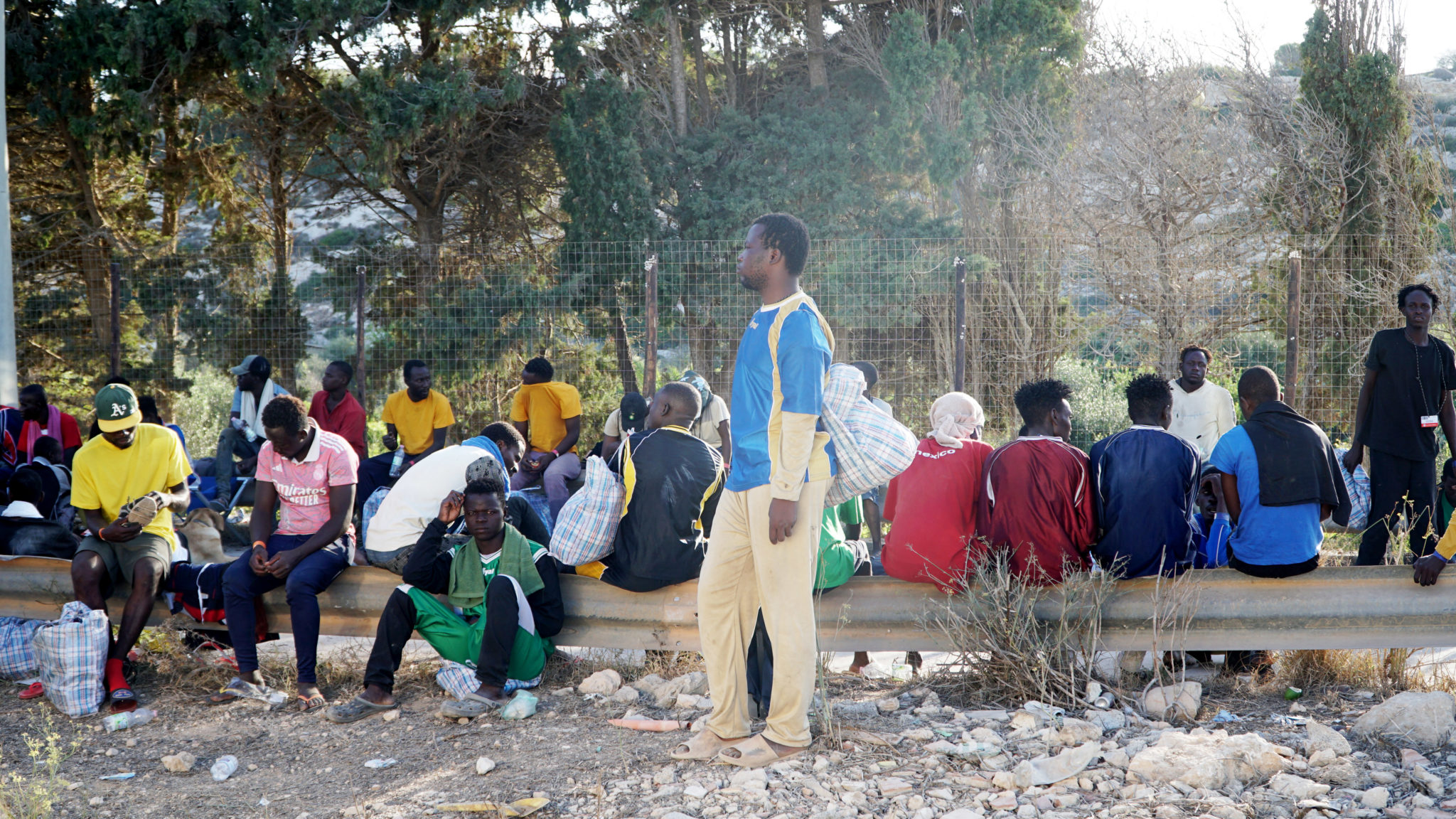
The Reception Center just outside the town of Lampedusa. 09/2023 by Fellipe Lopes.
The migrants, who are mainly from Gambia, Senegal, Tunisia and Sudan, on the African continent, walked to the town centre in search of food and water, leading to chaotic scenes. However, an exceptional level of solidarity has been shown by the community in every part of the island, with locals gathering food, water and clothing to give to people in need.
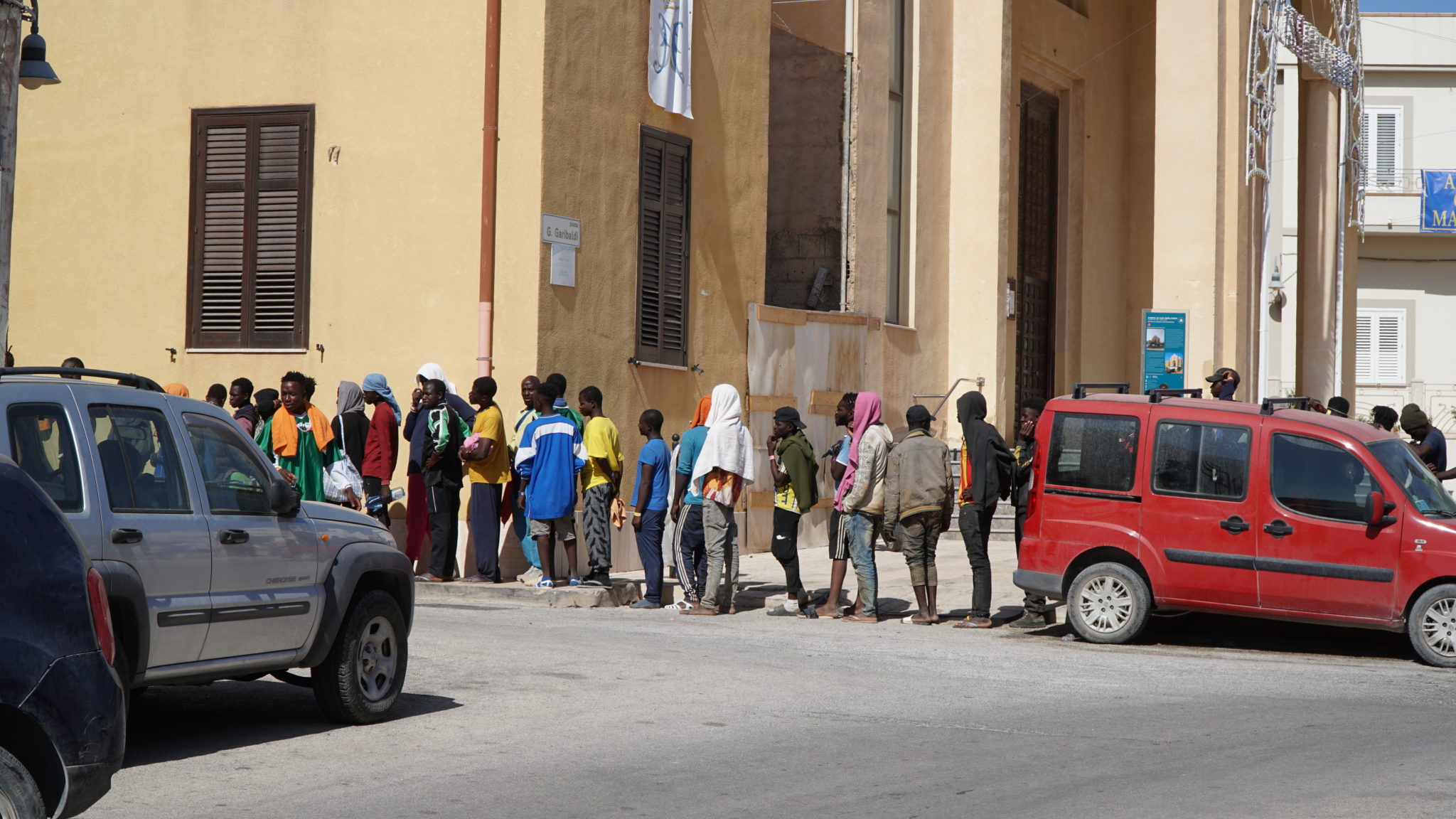
Food distribution at the main plaza organized by locals volunteers and NGO’s. 09/2023 by Fellipe Lopes
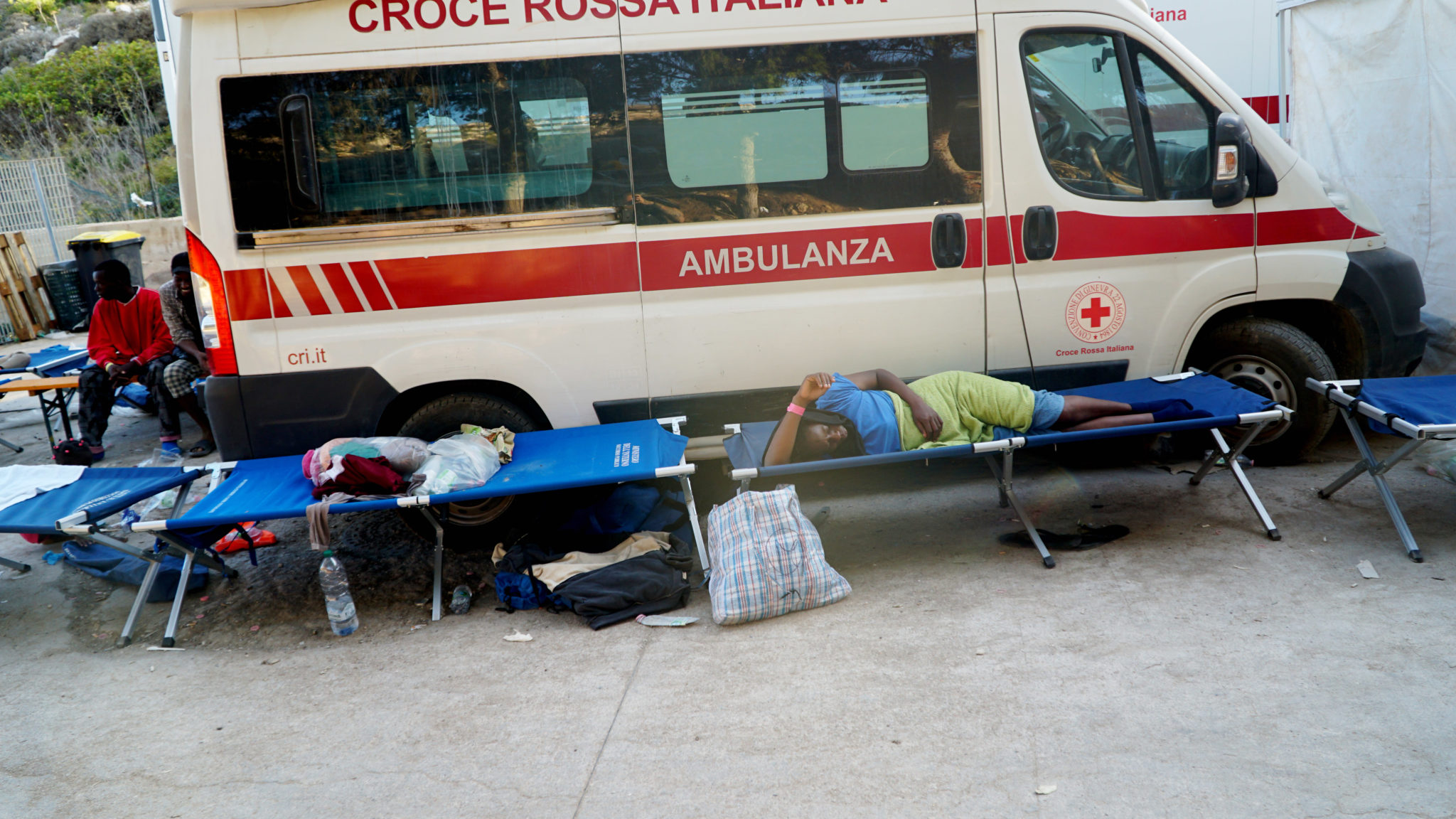
Makeshift medical area. 09/2023 by Fellipe Lopes
Many of the asylum seekers arrive in Lampedusa needing medical attention. During the crossing, many suffer from burns to the skin, whether from contact with fuel or sunburn caused by exposure to the sun and being at sea for days during high temperatures. Others have open wounds inflicted by the sharp edges of the poorly constructed boats. As most people do not have enough water with them for the days it takes to cross there is widespread dehydration, made worse by vomiting due to seasickness. The asylum seekers are often disorientated and weak by the time they arrive and urgently seek immediate medical assistance. Inevitably, pregnant women and children are the most vulnerable.
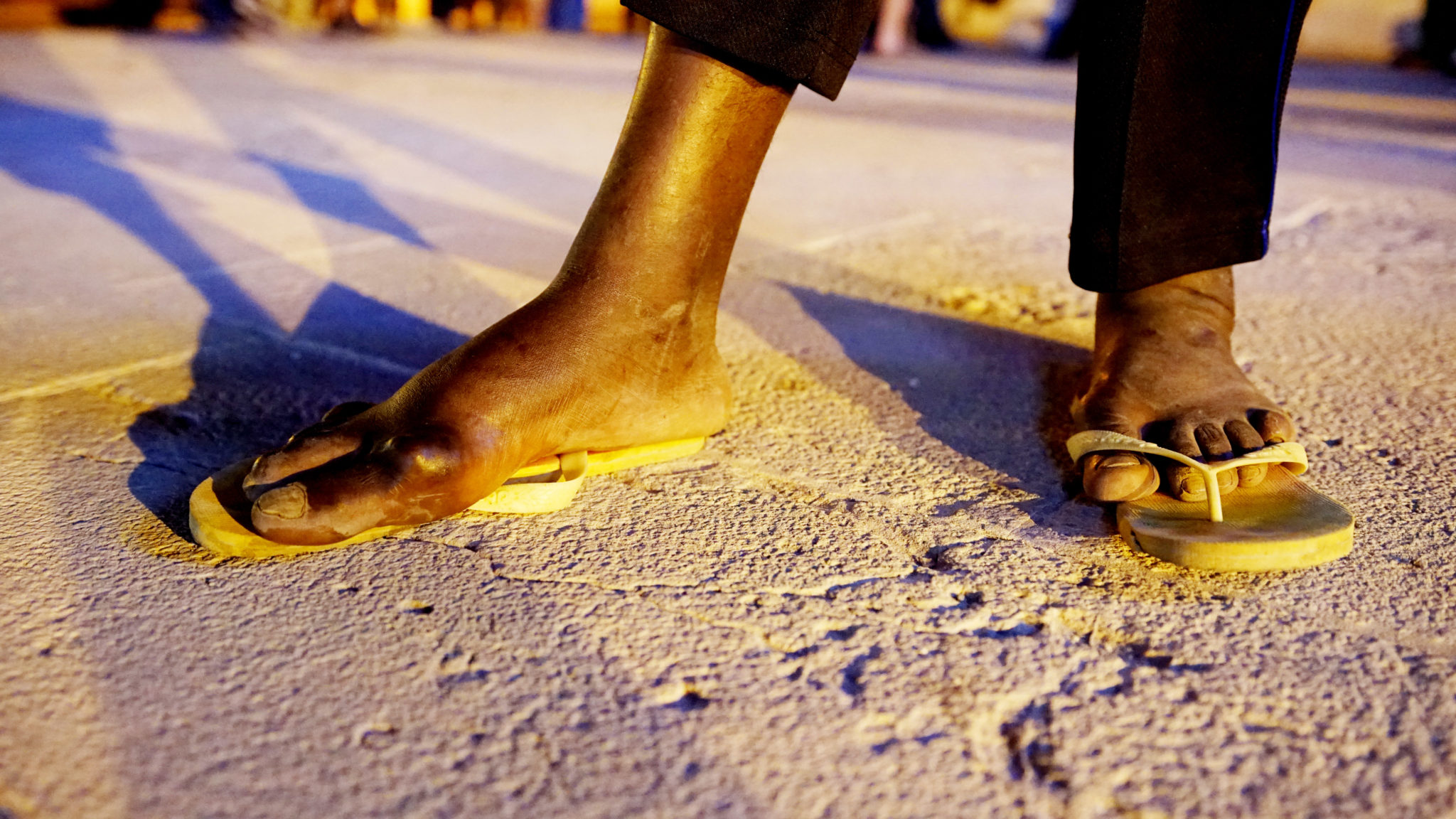
By Fellipe Lopes
The number of children and pregnant women on the streets of Lampedusa is alarming. Among the children is a large number of unaccompanied minors, who are clearly at risk. Many of these young people are lost and do not know what to do or where to turn – but the organisations that should be following up their cases, and providing assistance, are overwhelmed.
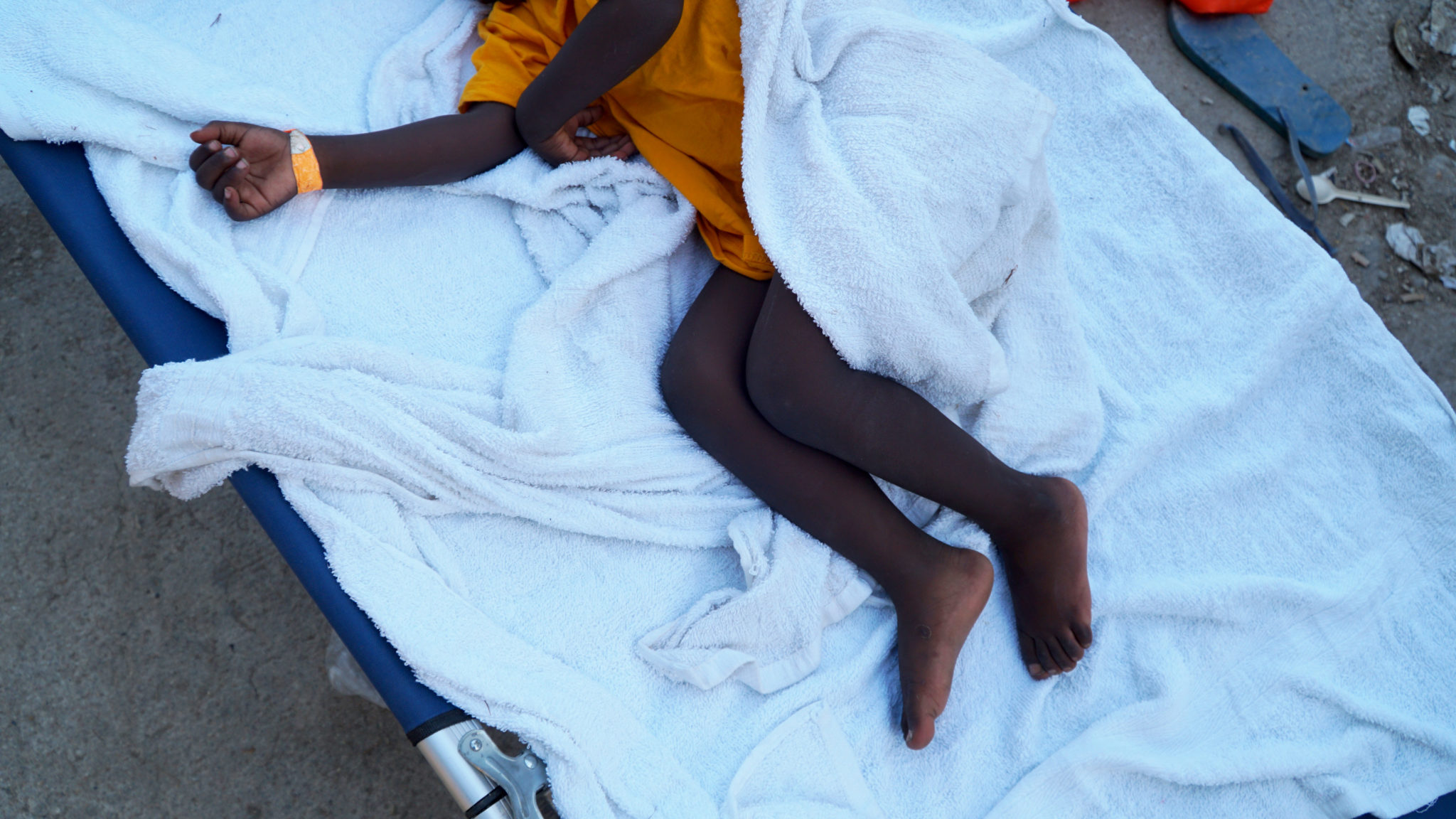
A young patient in a makeshift area outside the camp. 09/2023 by Fellipe Lopes.
Nobody wants to stay in Lampedusa, where even their basic needs cannot be met. People are very grateful for what the local community is doing, but they are desperate to leave and continue their journey, seeking a safe country to call home.
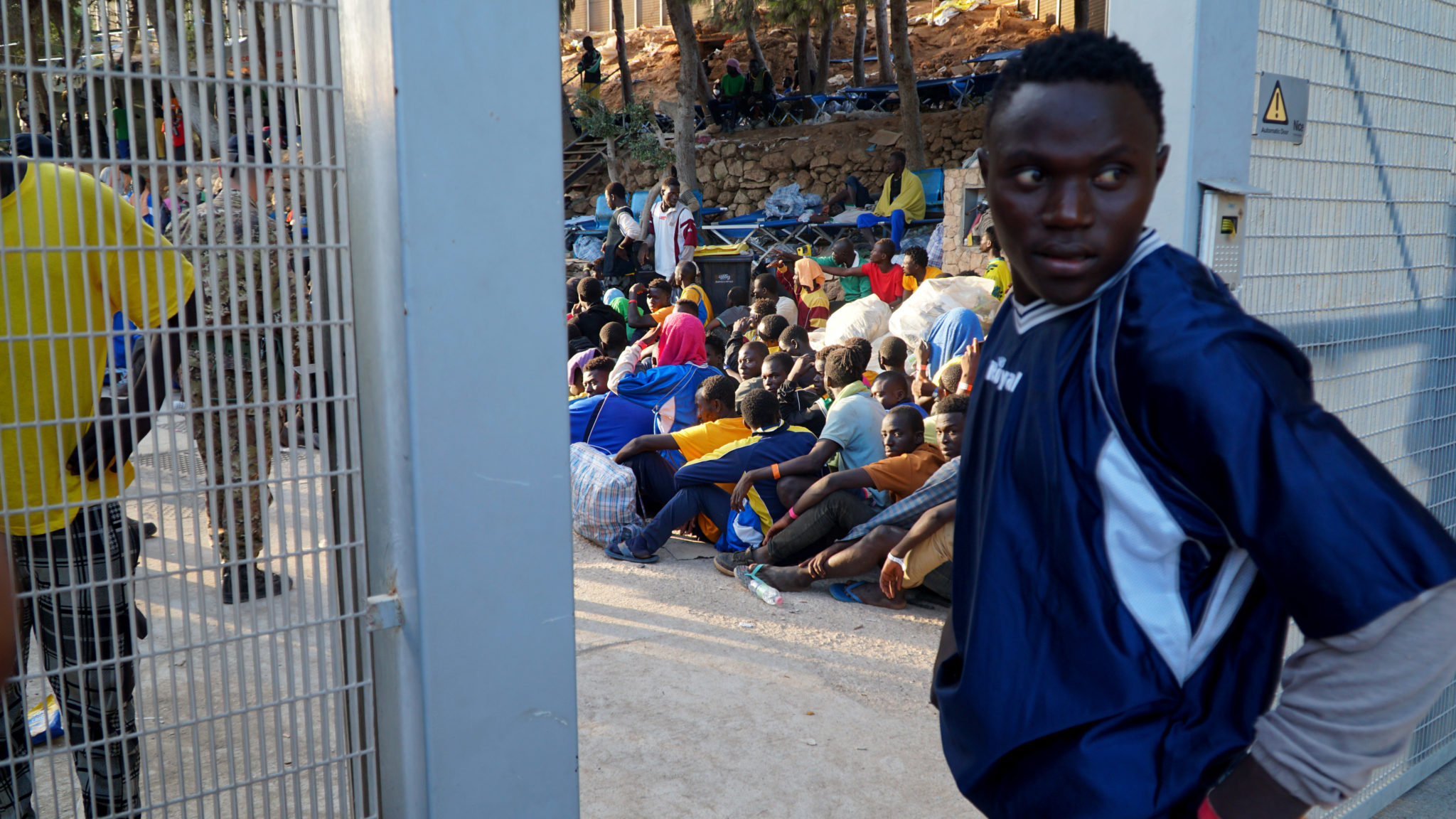
Main gate of the camp. 09/2023 by Fellipe Lopes
Inward migration from Africa is already a part of the history of Lampedusa, and more recently of all EU countries bordering the Mediterranean. However, the situation is more volatile than before. Today, confusion is widespread on the streets of Lampedusa. Local police and NGOs are visible, but the situation feels out of control. You can lay the management failure at the door of the Italian local authorities or European official bodies, but the reality is that people are suffering to an unnecessary extent.
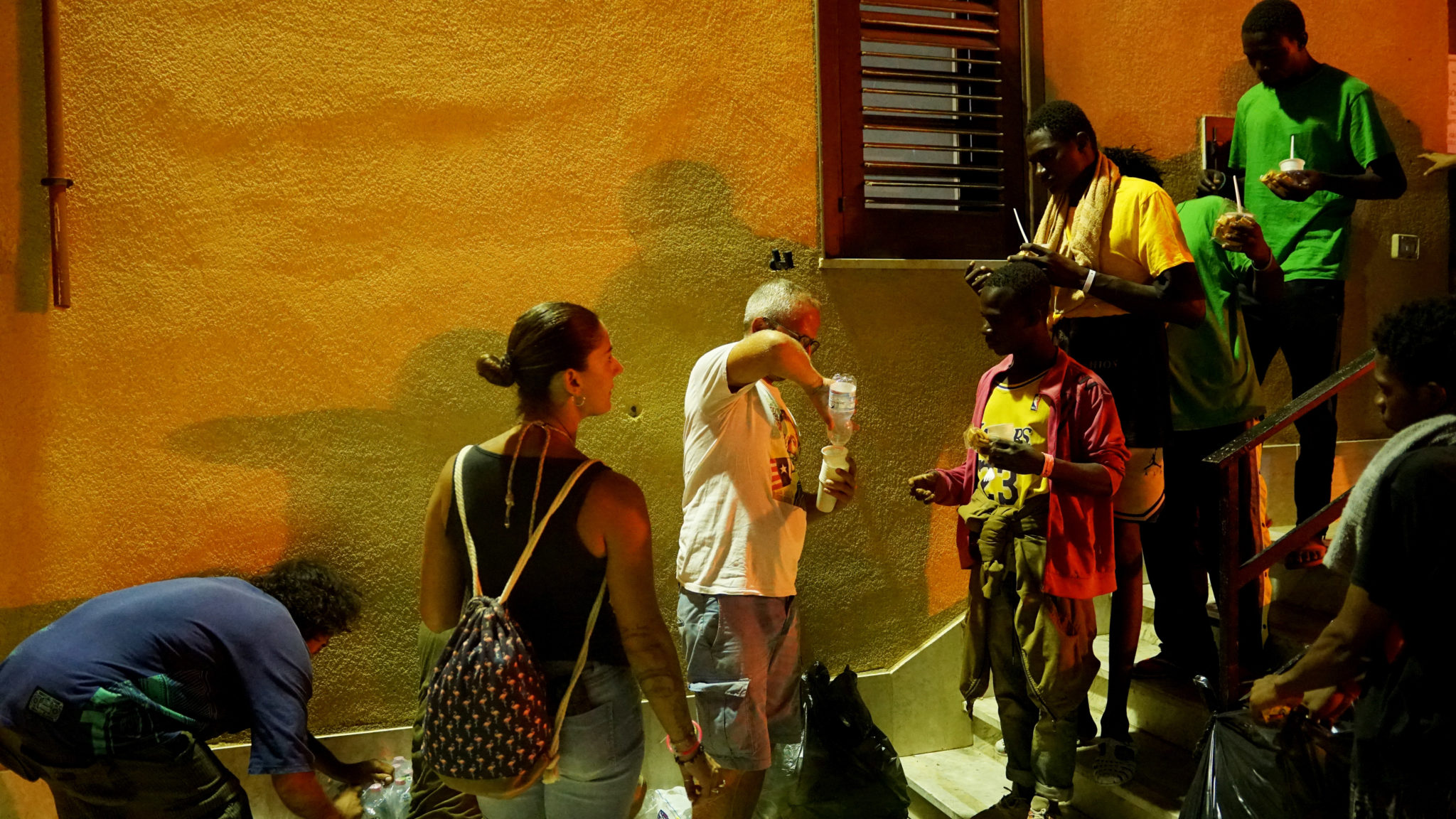
Food distribution at the main plaza organized by locals volunteers and NGO’s. 09/2023 by Fellipe Lopes.
And this is likely to get worse before it gets better. There is no official evacuation plan in effect and more boats are coming. The stark truth is that the island – and its inhabitants – are facing a really difficult situation. On top of which boats have been getting into difficulties at sea. Rescues are being conducted by the Italian coastguard, by NGO ships and by passing vessels in the area. However, they are also overwhelmed, resulting in recurring tragic events.
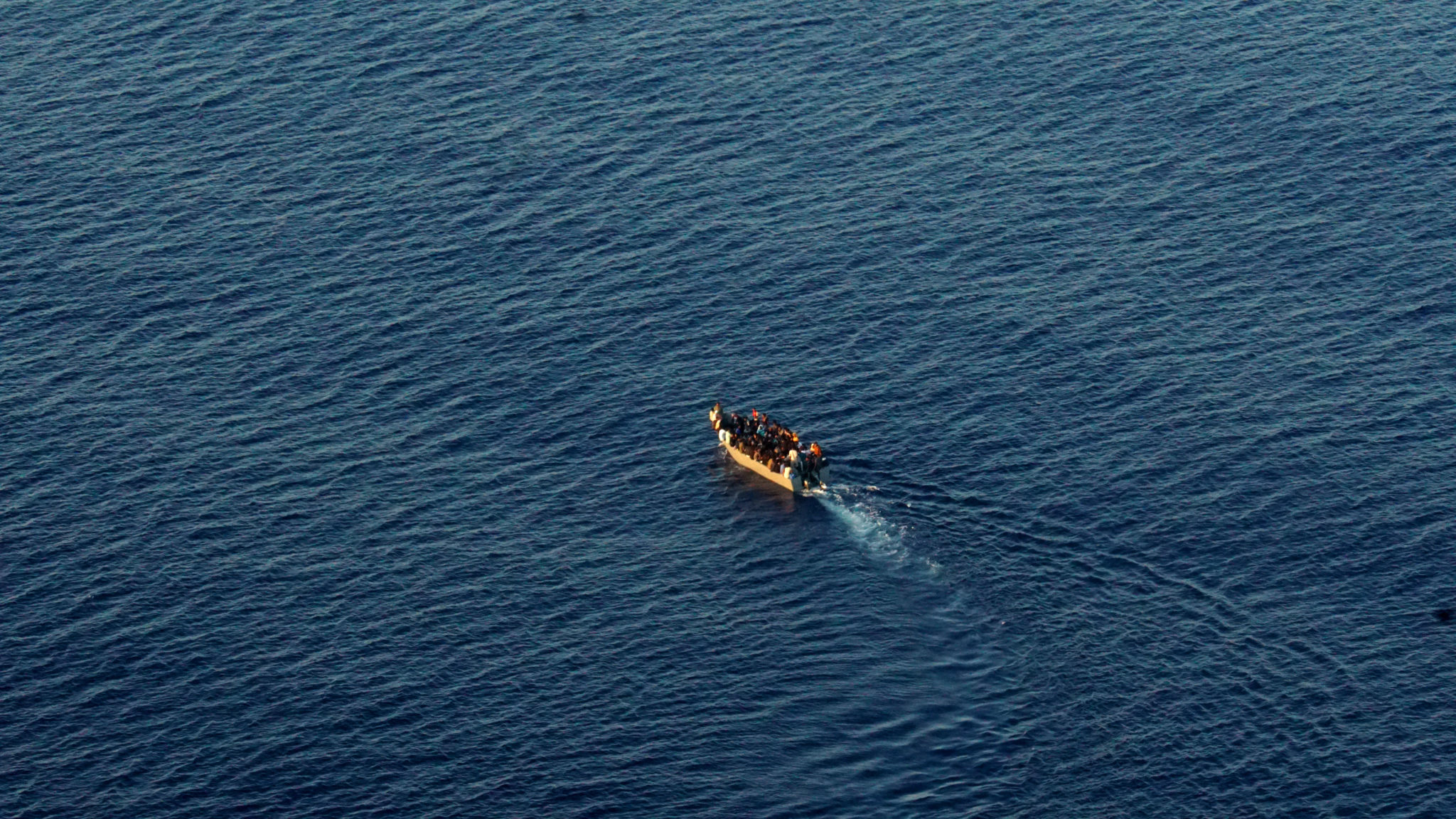
Overcrowded boat lost trying to get to Italy. 09/2023 by Fellipe Lopes.
It was against this backdrop that a European Delegation decided to visit the island. In advance of that visit, however, there was a mass transfer of people from Lampedusa to mainland Italy in order to clear the streets. The migrants who remained were taken, back to the hotspot/camp out of immediate public view. The island was given a new look, with all evidence of the tragic scenes happening just days before, erased.
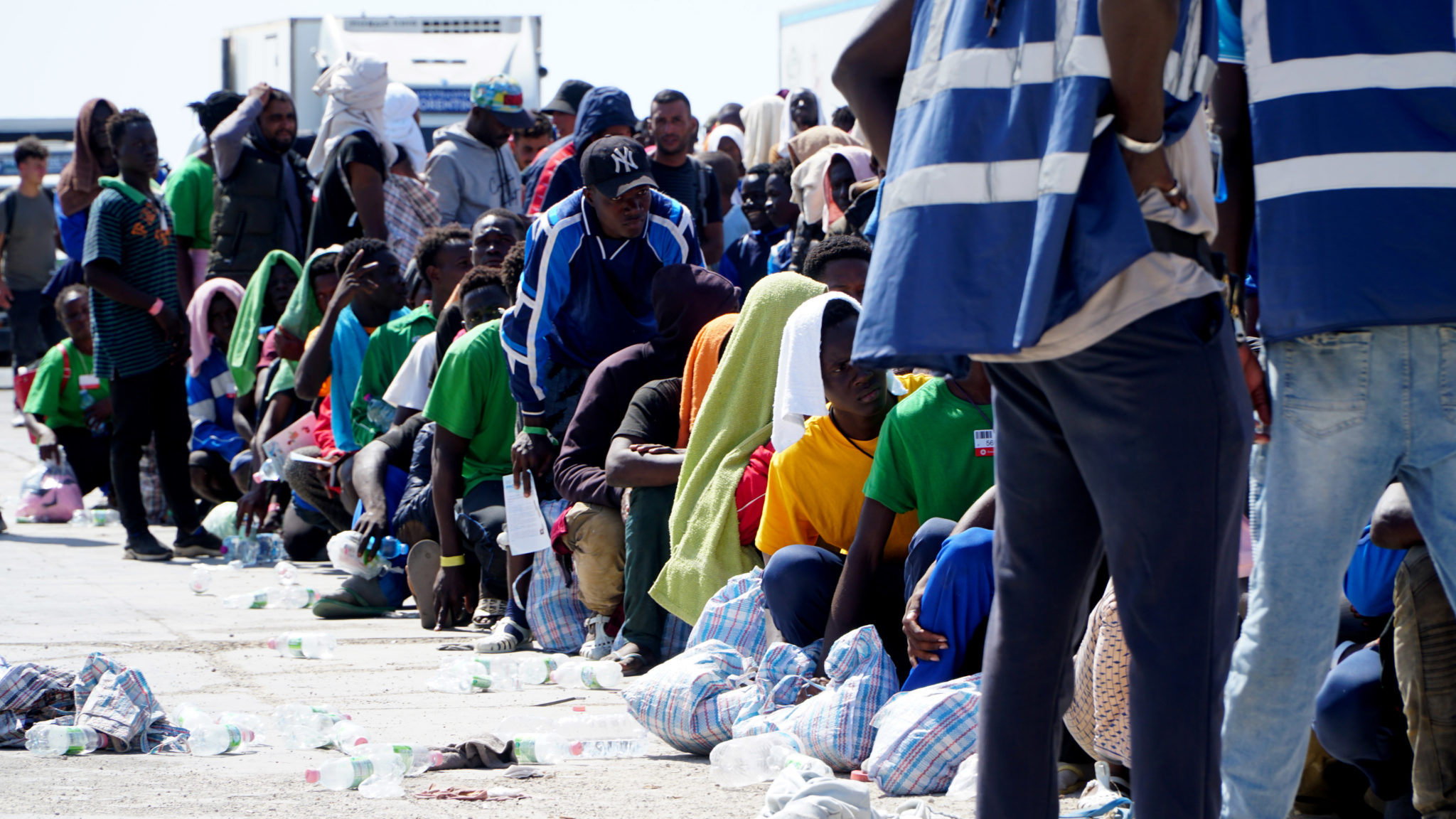
Migrants being transferred to mainland Italy. 09/2023 by Fellipe Lopes.
On Sunday, the European Commission President, Ursula von der Leyen, and Italian Prime Minister Giorgia Meloni visited the island of Lampedusa to assess the situation. They stayed for less than two hours. At the press conference, held after a visit to the hotspot/camp, they announced a 10-point plan to address the surge in migrant arrivals. This includes a series of new measures to be undertaken by the European Union Asylum Agency (EUAA) and the European Border and Coast Guard (Frontex) – personnel from whom will be deployed to Italy to manage new arrivals and "take care" of the situation in the Mediterranean Sea.
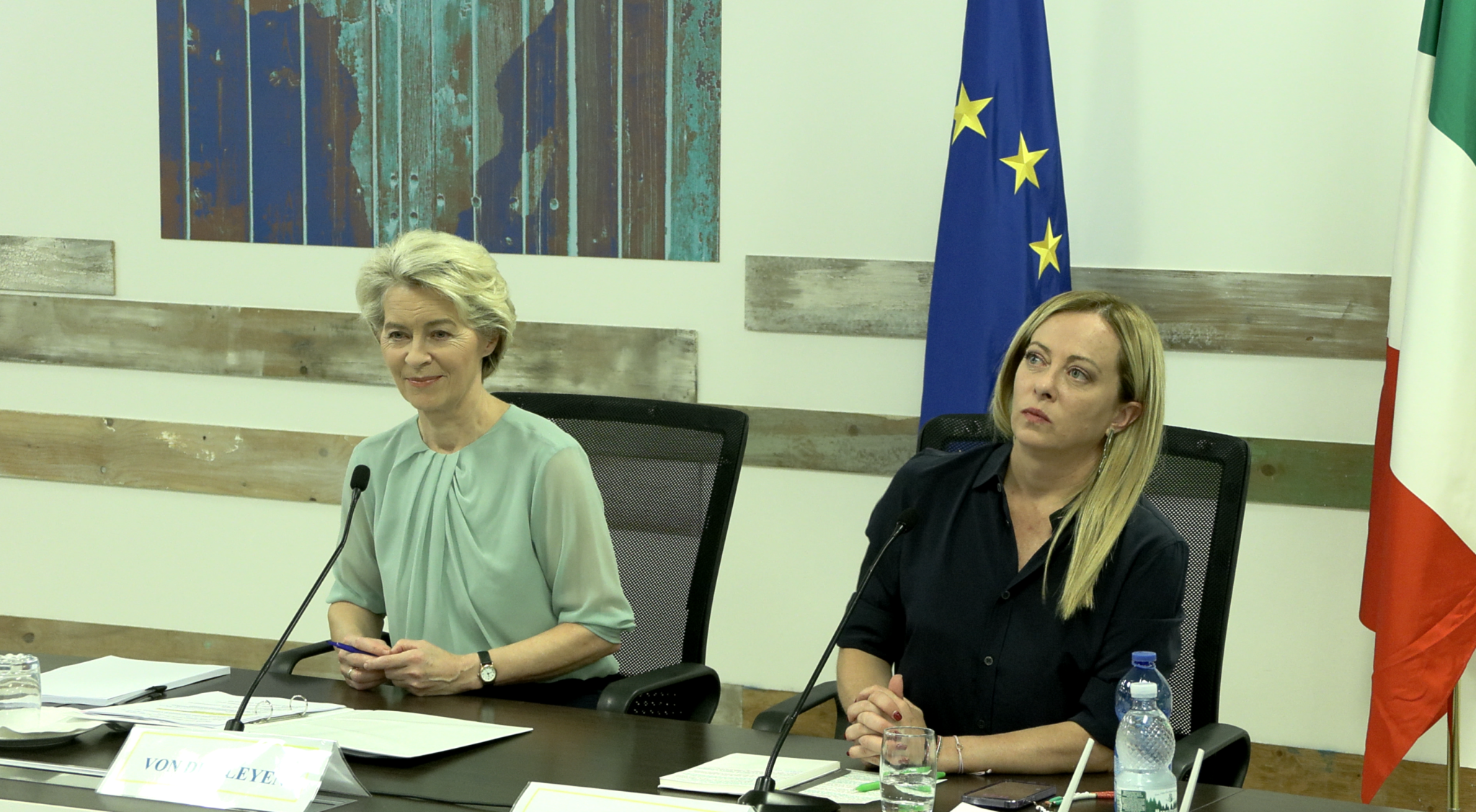
European Commission President Ursula von der Leyen and Italian Prime Minister Giorgia Meloni at the Press Conference in Lampedusa. 09/2023 by Fellipe Lopes
"We," the European Commission President Ursula von der Leyen, said, "will decide who comes to the European Union and what under circumstances and not the smugglers and traffickers." Ursula von der Leyen, talked about the “need to think about safe corridors.” But those aspirational words cannot disguise the fact that, over the past few years, no real, sustained efforts have been made by the European Union to create legal routes for migrants or asylum seekers.
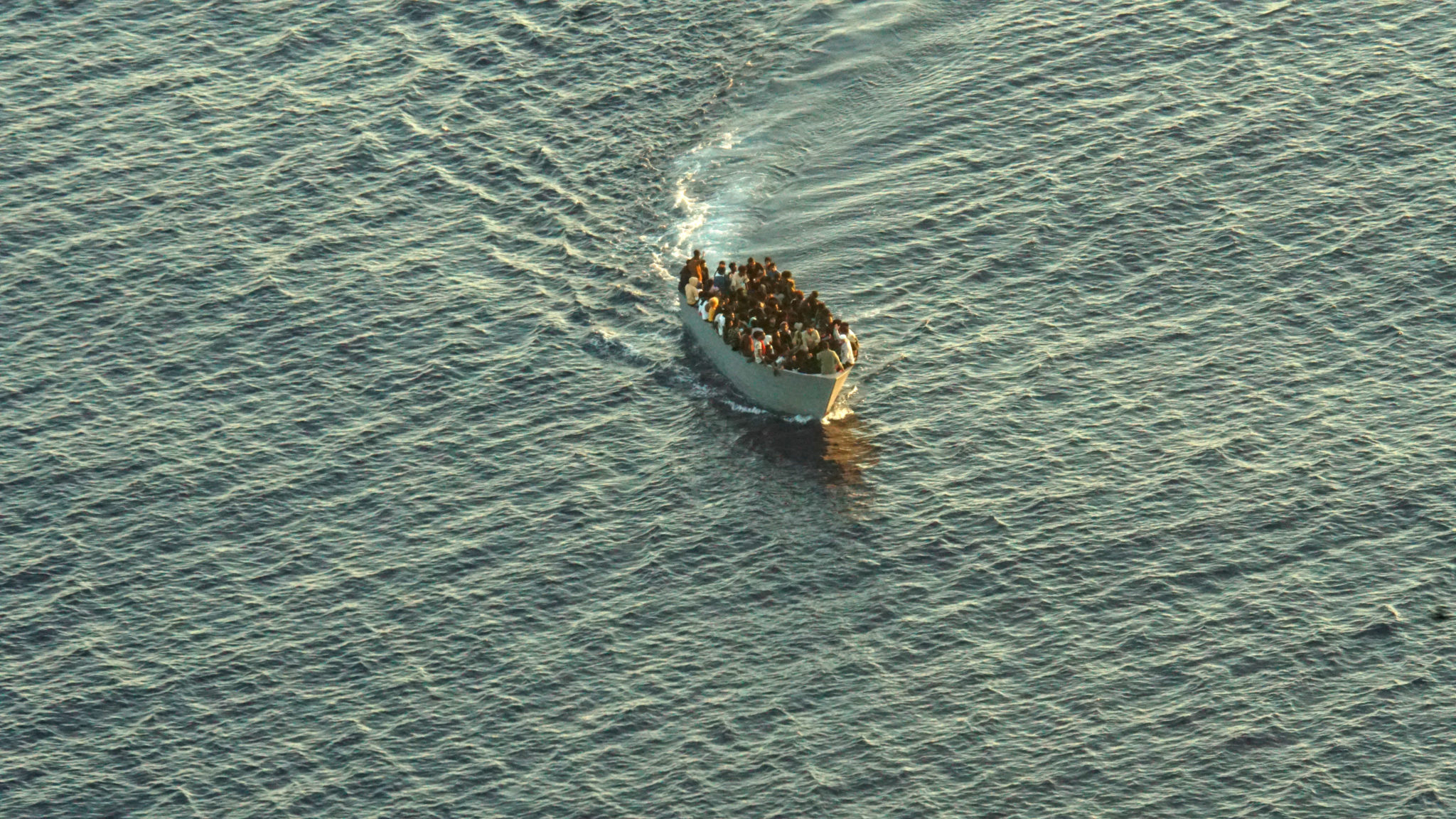
Overcrowded boat lost trying to get to Italy. 09/2023 by Fellipe Lopes
The Mediterranean, meanwhile, remains the deadliest sea route on the planet. Just this year, 2,375 people were registered as dead or missing on this route, with actual figures almost certainly a lot higher due to undetected shipwrecks. When asked, the migrants, mostly from sub-Saharan Africa, say they would "rather die in the sea than stay in Tunisia." Claiming asylum is a human right. But, under the system currently in effect, people only have the right to claim asylum once they have arrived in a safe country. Thus, by not providing legal routes and safe passage, people are being forced to take the dangerous risk of crossing the Mediterranean Sea.
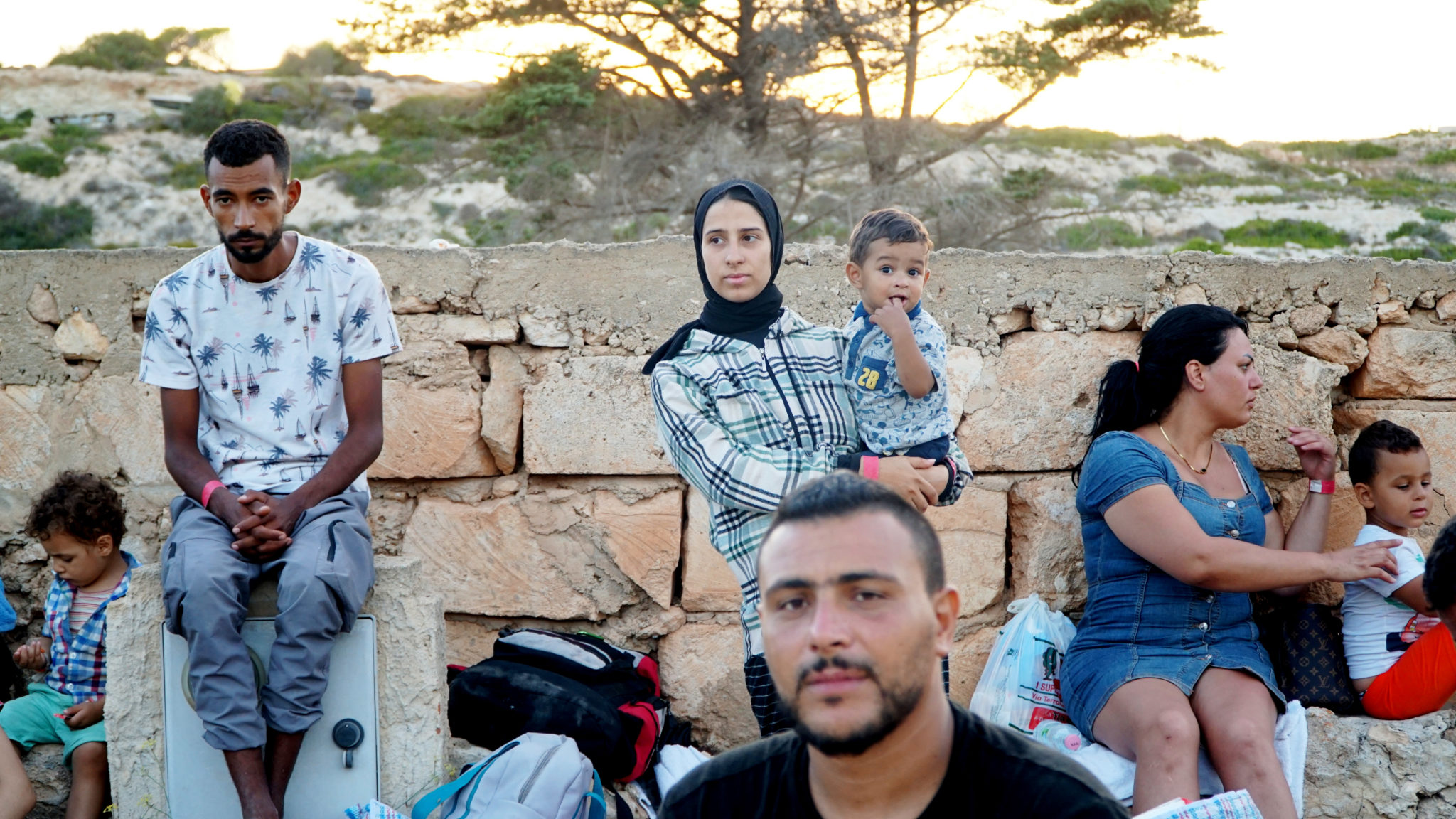
By Fellipe Lopes
So the question that the European Union must answer is fundamental. How are people fleeing political and personal oppression meant to claim asylum in Europe if they can’t get here legally – and when they do 'illegally', they are criminalised and punished in a way that seems at once hostile and merciless?
It is also starkly at odds with the compassion shown by the inhabitants of the island of Lampedusa. But there is only so much that ordinary people can do in the face of a humanitarian crisis that seems certain to get worse, following the appalling destruction heaped on Libya by Storm Daniel.
RELATED

- Opinion
- 22 Sep 22
Album Review: Vieux Farka Touré Et Khruangbin - Ali

- Opinion
- 26 Apr 20








